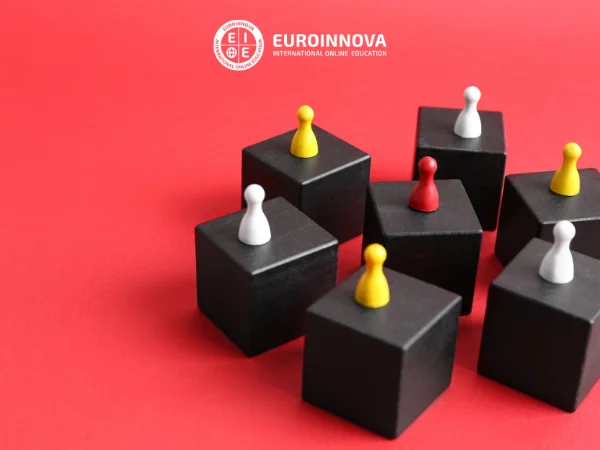Although each worker is unique and performs a specific function in the company, currently, special interest has been placed in the study of work teams and their promotion, since it has been proven that unity is strength, which improves the work environment and, therefore, productivity. To achieve a business objective, it is important that all teams, within their competencies, row in the same direction, with nine roles in the work team crucial to make this possible. Do you want to know what they are? We invite you to discover it in this post!

What are the roles in work teams?
Roles in work teams are the specific functions that members perform to contribute to the achievement of the team’s objectives. Each role has defined responsibilities and can vary depending on the individual skills, knowledge and experiences of each team member.
Thus, each group being properly integrated into the business structure is key so that its work is reflected in the organization’s goals and, for this, there are various models that study and define the way of working of each team, thus stipulating the nine roles in work teams.
The Belbin Model and its nine team roles
The nine roles in the work team that we want to talk about in this post are based on the Belbin Model, which consists of identifying nine behavioural styles that people tend to show in a team. These roles, proposed by Meredith Belbin, describe individual strengths and how each person can effectively contribute to teamwork.
Action roles
Action roles in a team focus on carrying out tasks and achieving tangible results. These roles focus on the execution of specific actions to achieve the team’s objectives and are also subdivided into three more profiles:
- Implementer: The role of the implementer is characterized by converting ideas into concrete actions, and organizing them efficiently for execution. In addition, they also plan the necessary resources and monitor the process.
- Driver: They are the one who motivates the team and takes on the challenge of keeping it cohesive and stimulated towards achieving new goals. You are usually proactive, agile in making decisions and creative in generating new ideas.
- Finisher: They care about the details and the quality of the results. They guarantee that deadlines are met and detect possible errors, one of their main characteristics being perfectionism and rigour.
Mental roles
The mental roles of the group focus on analysis, idea generation, and the provision of specialized knowledge. Their main tasks are to carry out critical reflections, to develop creative ideas and to provide specialization to the work. Furthermore, within this division, three profiles are distinguished.
- Evaluating monitor: Their function is to objectively analyze the options to make informed decisions. They evaluate each situation with a critical approach, identify possible risks and look for preventive solutions.
- Brain: They have technical knowledge and specific skills to provide solutions tailored to each project. Their job also consists of providing advice, since their knowledge is essential for achieving tasks and objectives.
- Specialist: They have both technical knowledge and extensive experience in your field. Their job is to guide the team towards success in the most efficient way.
Social roles
Social roles in a team focus on interaction, collaboration, and maintaining effective relationships between members. These roles focus on promoting harmony, facilitating communication, and resolving conflicts within the group to achieve a collaborative environment. Furthermore, we can differentiate three profiles within social roles.
- Resource Investigator: Acts as an external liaison, seeking and utilizing external resources for the benefit of the team and establishes connections between individuals or supplier entities. In addition, they facilitate access to contact information and manage the distribution of resources among the team.
- Cohesive: Works to create and maintain a harmonious environment, cares about the quality of interpersonal relationships and promotes camaraderie. One of their main functions is to conciliate work conflicts and offer emotional support in tense situations.
- Coordinator: They are responsible for directing and organizing the team’s activities. They must also designate tasks for each member and always seek to maintain coherence in the team’s common work.
Benefits of creating a balanced team
As you can see, all of these roles add great value to work teams, since they promote efficiency, quality and order in each project. That a group is balanced in its profiles is essential, since approaching tasks from different points of view will guarantee a successful and competitive result.
If you have time, you can also read about:
- Is the stress of work overwhelming you? It’s time to turn on resilient mode
- Job dissatisfaction: what happens when you wake up unmotivated for your job?





